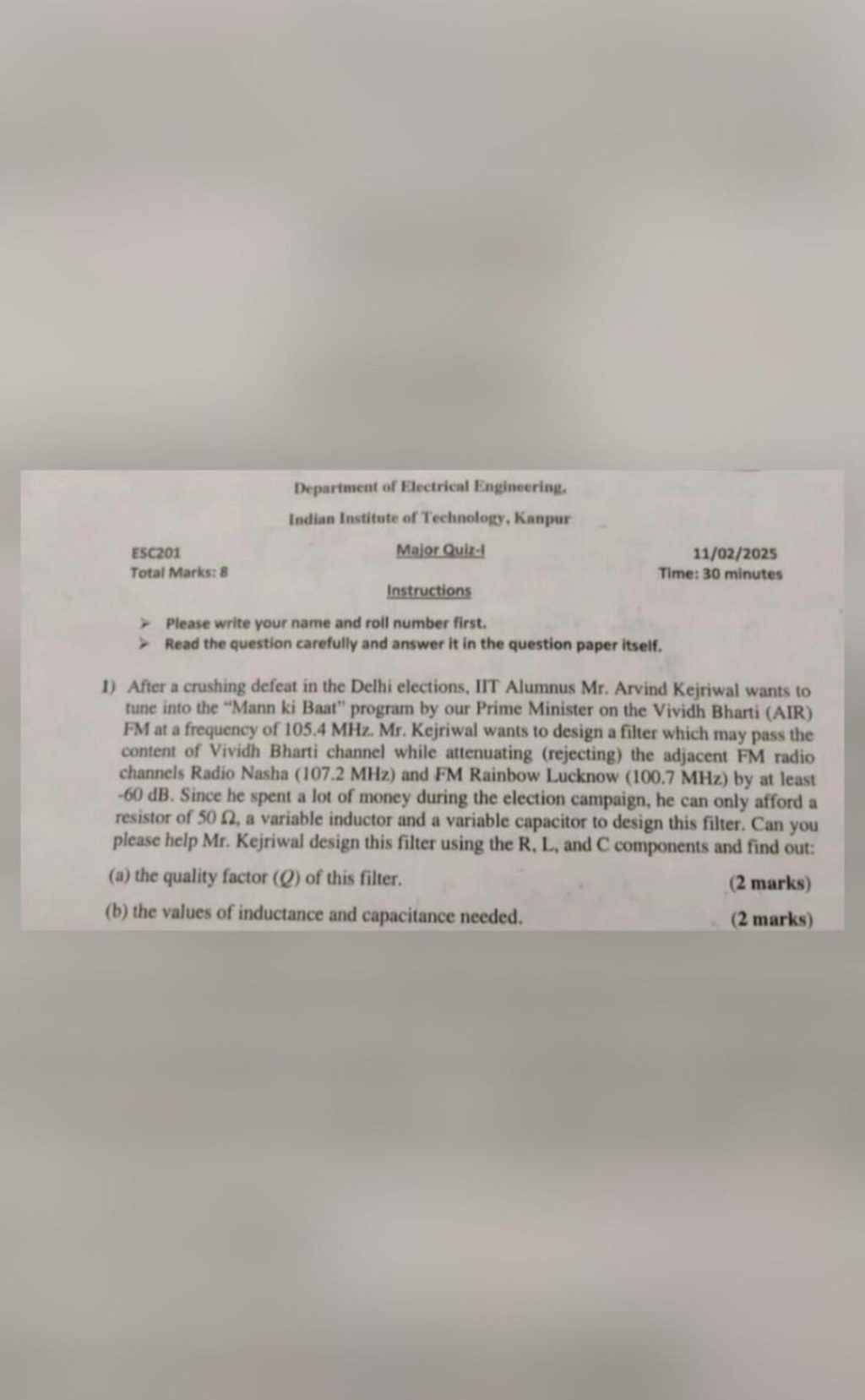
Wanted Exam to be More Engaging: IIT Kanpur on ‘Kejriwal & Mann Ki Baat’ Question
In an unprecedented move, the Indian Institute of Technology (IIT) Kanpur has confirmed that a question paper asking students to design a filter for Arvind Kejriwal, the Chief Minister of Delhi, to help him listen to Prime Minister Narendra Modi’s ‘Mann Ki Baat’ after the Delhi poll loss has gone viral. The question has sparked widespread curiosity and debate, with many questioning the relevance and creativity of the question.
As per the news report, the professor who drafted the paper, who wishes to remain anonymous, likes to use “references to well-known personalities…to make exam questions more engaging.” The question, which has been shared widely on social media, reads: “Design a filter that Arvind Kejriwal can use to tune into PM Narendra Modi’s ‘Mann Ki Baat’ after the Delhi poll loss.”
The question has been met with both praise and criticism, with some hailing it as a creative and engaging way to test students’ skills, while others have questioned its relevance and difficulty level. While some have argued that the question is too easy and doesn’t challenge students enough, others have praised the professor for using a real-world scenario to make the exam more interesting.
The IIT Kanpur’s confirmation of the question has sparked a renewed debate about the need to make exams more engaging and relevant to real-life scenarios. With the increasing focus on innovative and out-of-the-box thinking, it’s no surprise that professors are looking for ways to challenge their students and make the exam process more exciting.
One of the biggest challenges facing educators today is finding ways to make exams more engaging and relevant to students’ lives. With the rise of online learning and the increasing importance of critical thinking and problem-solving skills, it’s essential that exams are designed to test students’ abilities in a more meaningful way.
In recent years, there has been a growing trend towards using real-world scenarios and case studies in exam questions. This approach not only makes exams more engaging but also helps students develop the skills they need to succeed in their future careers.
For example, a question that asks students to design a sustainable solution to a real-world problem, such as climate change or poverty, requires them to think critically and creatively. This approach not only tests their knowledge but also helps them develop the skills they need to tackle complex problems.
In addition to using real-world scenarios, educators are also experimenting with different formats and styles of exam questions. For example, some exams now include multimedia elements, such as videos or podcasts, to make the questions more engaging and interactive.
Another trend that is gaining popularity is the use of storytelling in exam questions. This approach involves presenting students with a narrative or scenario and asking them to analyze it and draw conclusions. This approach can be particularly effective in subjects such as history or literature, where students need to develop their critical thinking and analytical skills.
While the IIT Kanpur’s question about Arvind Kejriwal and ‘Mann Ki Baat’ may be unconventional, it’s a great example of how educators are pushing the boundaries of traditional exam questions. By using real-world scenarios and references to well-known personalities, professors can make exams more engaging and relevant to students’ lives.
In conclusion, the IIT Kanpur’s question about Arvind Kejriwal and ‘Mann Ki Baat’ is a great example of how educators are working to make exams more engaging and relevant to real-life scenarios. By using references to well-known personalities and real-world scenarios, professors can challenge students and help them develop the skills they need to succeed in their future careers.
As the education landscape continues to evolve, it’s essential that educators continue to innovate and experiment with new approaches to exam questions. By doing so, they can create a more engaging and effective learning experience for their students.




